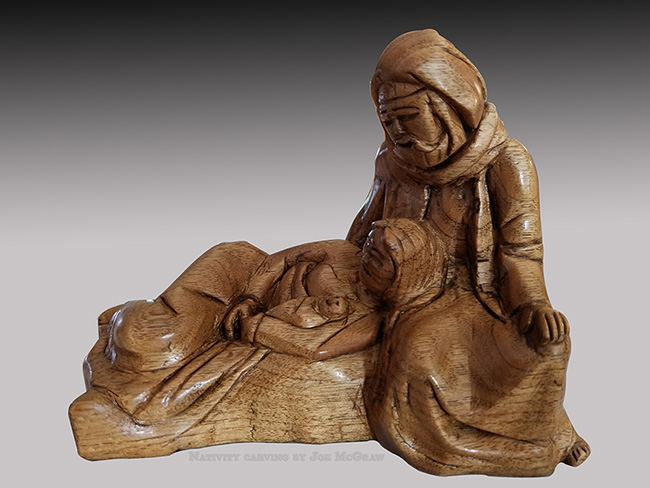Anna was an elderly widow. Her husband had passed away while they were still young, and she had spent the rest of her life in the temple, serving God, in His presence, knowing Him ever more intimately. When she saw the young couple enter the temple to dedicate their infant son she responded by giving thanks to God and proceeding to tell everyone who was seeking the redemption of Jerusalem about the Child. What was it about the Child, and what was it about Anna, that prompted her response?
I have wondered about that before, but this morning, as I read the passage again in Luke 2, I decided to pursue it. The answer came in a word. I had noted in the margin of my Bible the word that is translated “giving thanks” is not the word most often used for giving thanks. So, I decided to research the word (if you’re a Greek geek on New Testament words, see the footnote*). It carries the idea of “in response to” or “considering what’s seen” thankfulness is the appropriate response. So, here’s what we see.
As Anna observed the Child, she knew He was the fulfillment of God’s promise. She could only respond like Nebuchadnezzar did in Daniel 4:38 when he came to grips with the sovereign power of the God of Daniel: “Now I, Nebuchadnezzar, praise, exalt and honor the King of Heaven for all His works are true and His ways are just….” It is an exalting—a thankful honoring of God for the faithfulness that is revealed as part of His character as He fulfills His promise! It is a response of praise, thanksgiving and agreement. Anna had spent her life serving God, in the temple, in His presence, getting to know Him, and she recognized the Child for who He was. And, the response was agreement, praise, thanksgiving!
This Christmas season—and all year round—may our hearts respond as Anna did—with joyous, thankful praise in acknowledgement that this Child is the Redeemer for whom all the world is seeking! This Child is the fulfillment of prophecy and promise! This Child is the express radiance of the God Who is Light and in Whom there is no darkness at all! This Child is the Living Word—the Divine Logos—who reveals the deepest thought of God regarding the value of man and the love of God Who works to reconcile man to Himself by taking on flesh and dwelling among us, revealing a glory as of the only begotten of the Father, full of grace and truth.
God is—by His own description of Himself—God is “the Lord, the Lord God, gracious and merciful, slow to anger, and overflowing with lovingkindness and truth.” And, this Child is the embodiment of that grace and truth! How can we not cry out with thanksgiving and praise!?
*”anthomologeo” (ἀνθομολογεω for you Greek scholars). I thought it might have the ring of something like “anthem” combined with “logo” or “lego”, i.e., something of an “anthemic saying.” It actually is more compounded than that. It is a combination of anti, homo, and lego (ἄντι, ὅμο, λέγω). It isn’t the usual word used for giving thanks in the New Testament, but that is a common translation of the word in both classical and New Testament Greek. It’s a combination of the preposition “anti,” meaning against or opposed to, and the word for confessing or agreeing (ὁμολογέω).




